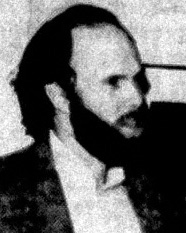Richard Pearce | |
|---|---|
 Pearce in 1976 | |
| Born | January 25, 1943 San Diego, California, U.S. |
| Occupations | Film director, television director, cinematographer |
| Years active | 1970–2006 |
| Spouse | Lynzee Klingman |
Richard Pearce (born January 25, 1943) is an American film director, television director and cinematographer. [1] In addition to feature films, he has directed TV movies and TV series.